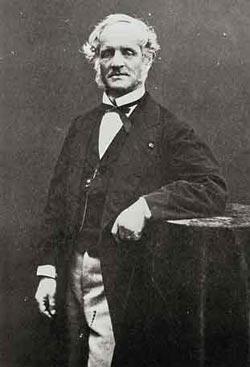First Athenian School on:
[Wikipedia]
[Google]
[Amazon]


 The term First Athenian School ( el, Α΄ Αθηναϊκή Σχολή) denotes the literary production in
The term First Athenian School ( el, Α΄ Αθηναϊκή Σχολή) denotes the literary production in
Athens
Athens ( ; el, Αθήνα, Athína ; grc, Ἀθῆναι, Athênai (pl.) ) is both the capital and largest city of Greece. With a population close to four million, it is also the seventh largest city in the European Union. Athens dominates ...
between 1830 and 1880. After Greek Independence
The Greek War of Independence, also known as the Greek Revolution or the Greek Revolution of 1821, was a successful war of independence by Greek revolutionaries against the Ottoman Empire between 1821 and 1829. The Greeks were later assisted by ...
, the basic intellectual centres of the Greek world were the Ionian Islands (with the Heptanese School) and Athens
Athens ( ; el, Αθήνα, Athína ; grc, Ἀθῆναι, Athênai (pl.) ) is both the capital and largest city of Greece. With a population close to four million, it is also the seventh largest city in the European Union. Athens dominates ...
, the capital of the new Greek Kingdom
The Kingdom of Greece ( grc, label=Greek, Βασίλειον τῆς Ἑλλάδος ) was established in 1832 and was the successor state to the First Hellenic Republic. It was internationally recognised by the Treaty of Constantinople, where ...
. Many of the leading members of the First Athenian School were of Phanariote
Phanariots, Phanariotes, or Fanariots ( el, Φαναριώτες, ro, Fanarioți, tr, Fenerliler) were members of prominent Greek families in Phanar (Φανάρι, modern ''Fener''), the chief Greek quarter of Constantinople where the Ecumenic ...
origin, whence it is sometimes referred to as the Phanariotic School (Φαναριωτική Σχολή).
The main element of the school was romanticism
Romanticism (also known as the Romantic movement or Romantic era) was an artistic, literary, musical, and intellectual movement that originated in Europe towards the end of the 18th century, and in most areas was at its peak in the approximate ...
. The New Athenian School developed as a reaction against the First Athenian School from the 1880s on.
General traits
Some general traits of the school were: *Extensive use ofKatharevousa
Katharevousa ( el, Καθαρεύουσα, , literally "purifying anguage) is a conservative form of the Modern Greek language conceived in the late 18th century as both a literary language and a compromise between Ancient Greek and the contempor ...
, the purest form of the modern Greek
*Influence by the French romanticism
Romanticism (also known as the Romantic movement or Romantic era) was an artistic, literary, musical, and intellectual movement that originated in Europe towards the end of the 18th century, and in most areas was at its peak in the approximate ...
*Influence by the Phanariotic poetry
* Rhetorical style
*Patriotic tone, themes from the Greek War of Independence
Notable representatives
* Theodoros G. Orphanides *Dimitrios Paparrigopoulos
Demetrius is the Latinized form of the Ancient Greek male given name ''Dēmḗtrios'' (), meaning “Demetris” - "devoted to goddess Demeter".
Alternate forms include Demetrios, Dimitrios, Dimitris, Dmytro, Dimitri, Dimitrie, Dimitar, Dumi ...
*Alexandros Rizos Rangavis
Alexandros Rizos Rangavis or Alexander Rizos Rakgabis" ( el, Ἀλέξανδρος Ῥίζος Ῥαγκαβής; french: Alexandre Rizos Rangabé; 27 December 180928 June 1892), was a Greek man of letters, poet and statesman.
Early life
He w ...
*Panagiotis Soutsos
Panagiotis Soutsos ( el, Παναγιώτης Σοῦτσος; 1806 – 25 October 1868), was a Greek poet, novelist and journalist born in Constantinople (modern Istanbul, Turkey). He was the brother of the satirist Alexandros Soutsos and cousi ...
*Alexandros Soutsos
Alexandros Soutsos ( el, Ἀλέξανδρος Σοῦτσος) (1803–1863) was a Greek poet from a prominent Phanariote family. Soutzos family He founded the Greek Romantic school of poetry. Soutsos was born in Istanbul in 1803 from Chia ...
*Spyridon Vassiliadis
Spyridon Vasileiadis ( el, Σπυρίδων Βασιλειάδης; 6 December 1845 – 30 August 1874) was a Greek poet and playwright. Several of his works were translated into French
French (french: français(e), link=no) may refer to:
* Som ...
*Demetrios Bernardakis
Demetrios Bernardakis ( el, Δημήτριος Βερναρδάκης, ''Dimitrios Vernardakis'', also transliterated ''Dimitrios Bernardakis''), (3 December 1833—25 January 1907) was a polymath writer and Professor of History at the National and ...
* Dimosthenis Valavanis
Notable works
*''Demos and Heleni'' (1831) byAlexandros Rizos Rangavis
Alexandros Rizos Rangavis or Alexander Rizos Rakgabis" ( el, Ἀλέξανδρος Ῥίζος Ῥαγκαβής; french: Alexandre Rizos Rangabé; 27 December 180928 June 1892), was a Greek man of letters, poet and statesman.
Early life
He w ...
*''Leander'' (1834), novel by Panagiotis Soutsos
Panagiotis Soutsos ( el, Παναγιώτης Σοῦτσος; 1806 – 25 October 1868), was a Greek poet, novelist and journalist born in Constantinople (modern Istanbul, Turkey). He was the brother of the satirist Alexandros Soutsos and cousi ...
*''The Wedding of Koutroulis'' (1845), comedy by Alexandros Rizos Rangavis
*''Maria Doxapatri'' (1857), play by Demetrios Bernardakis
Demetrios Bernardakis ( el, Δημήτριος Βερναρδάκης, ''Dimitrios Vernardakis'', also transliterated ''Dimitrios Bernardakis''), (3 December 1833—25 January 1907) was a polymath writer and Professor of History at the National and ...
*''History of Modern Greek Literature'' (1877), historic review by Alexandros Rizos Rangavis
References
*R. Beaton, ''An Introduction to Modern Greek Literature'', Oxford University Press, 1999. *M. Vitti, ''Ιστορία της Νεοελληνικής Λογοτεχνίας'' 'History of Modern Greek Literature'' ed. Οδυσσέας, Athens, 2003. Phanariotes {{lit-mov-stub